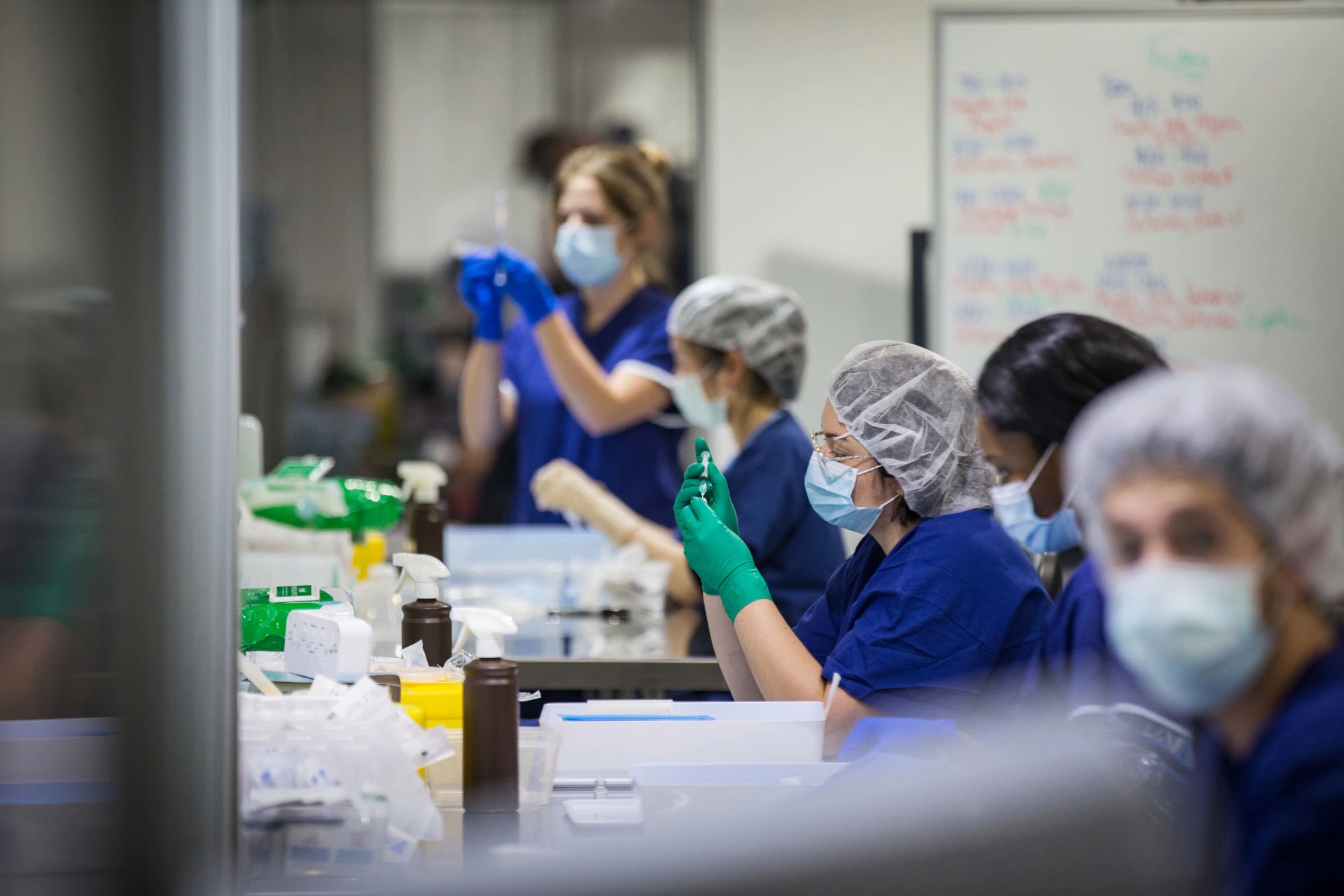What is C.1.2, the new Covid variant in South Africa, and should we be worried?


A new Covid variant detected in South Africa has made headlines around the world.
On Monday the National Institute for Communicable Diseases in South Africa issued an alert about the “C.1.2 lineage”, saying it had been detected in all provinces in the country, but at a relatively low rate.
C.1.2 was first detected in May, the alert said, but Delta is still the dominant variant spreading in South Africa and the world.
A pre-print, non peer-reviewed paper published about the variant said C.1.2 “has since been detected across the majority of the provinces in South Africa and in seven other countries spanning Africa, Europe, Asia and Oceania”.
The C.1.2 lineage has drawn the attention of scientists because despite its low rate in the population, it possesses mutations within the genome similar to those seen in variants of interest and variants of concern, like the Delta variant, as well as some additional mutations.
So what do we know about the new variant, and how concerned should we be?
Has the World Health Organization listed it as a variant of interest or concern?
Not yet. The National Institute for Communicable Diseases is continuing to monitor the frequency of C.1.2 and examine how it behaves. Tests to assess the impact of the mutations it possesses on infectiousness and vaccine resistance are still under way. So far, the virus has not fulfilled the WHO criteria to qualify as a “variant of concern” or “variant of interest”.
Variants of concern, such as Delta, are those that show increased transmissibility, virulence or change in clinical disease, and a decreased effectiveness of public health and social measures.
Variants of interest are those shown to cause community transmission in multiple clusters, and which have been detected in multiple countries, but have not yet necessarily proven to be more virulent or transmissible.
Then why was an alert issued?
A virologist and lecturer in immunology and infectious diseases with the University of Sydney’s Central Clinical School, Dr Megan Steain, said it’s because of the particular mutations that C.1.2 contains.
“It contains quite a few key mutations that we see in other variants that have gone on to become variants of interest or concern,” Steain said. “Any time we see those particular mutations come up, we’d like to keep an eye on the variant to see what it’s going to do. These mutations may affect things like whether it evades the immune response, or transmits faster.”
It will take some time for scientists to do the laboratory tests to see whether the virus is in fact fitter, she said.
“While we can say that it has a few key mutations that have led to other variants being more infectious, often what we find is the mutations work in synergy together which can overall lead to a fitter virus, potentially, or a weaker virus.
“All these studies in the lab take quite a while. There is a lot of work to be done.”
Is there a chance this variant might die out?
Yes. Covid-19 variants emerge all of the time and many of them disappear before they can become a real problem. Many virus variants are very fragile.
The key mutants are the ones that survive the changes and continue, and start to overgrow the variants of the past, which is what we saw with Delta.
“C.1.2 would have to be pretty good, pretty fit, and pretty fast to outcompete Delta at this stage,” Steain said. “I think we’re still very much at a point where this could die out, the prevalence is really low.
“We saw this with the Beta variant, and other variants of concern, where it looked like there could be a problem, they even had areas where they were transmitted and spread quite well. But then they haven’t really taken hold over time, and were overtaken by other variants of concern that are able to transmit faster. And so they just essentially die out.
“That could easily still happen with C.1.2.”
What do scientists mean when they talk about a ‘fitter’ variant?
Using Delta as an example, it means it has gained some mutations which allow it to replicate faster and get into cells more efficiently.
“We refer to it as the ‘affinity’; the ability by which it’s able to grab on and attach to host cell receptors that allow the virus particles to enter into cells,” Steain said. “It’s better primed and ready-to-go to grab on to cells and get in and start an infection in the first place. And then it seems to replicate a bit faster as well, so it’s making more virus particles in a shorter period of time.”
Do we know if vaccines will be effective against C.1.2?
“We can take an educated guess based on some of the mutations that it has, in that it’s similar to what we’ve seen in other variants like beta, as well as Delta,” Steain said.
“So we think, perhaps, the serum won’t neutralise as well as it would against an ancestral strain. But until we actually do those experiments it’s speculative really. We’ve got to bear in mind that the vaccine so far looks like it’s holding up really, really well in terms of preventing severe infection and hospitalisations and deaths from variants. They’re really good at preventing that.
She said there was no need to panic.
“It’s important, however, to keep an eye on the other variants that are out there and just watch and see how they go.”
South Africa’s National Institute for Communicable Diseases said: “We are being cautious about the implications, while we gather more data to understand virus of this lineage.
“Based on our understanding of the mutations in this variant, we suspect that it might be able to partially evade the immune response, but despite this, that vaccines will still offer high levels of protection against hospitalisation and death,” the institute said.
Source: theguardian.com




